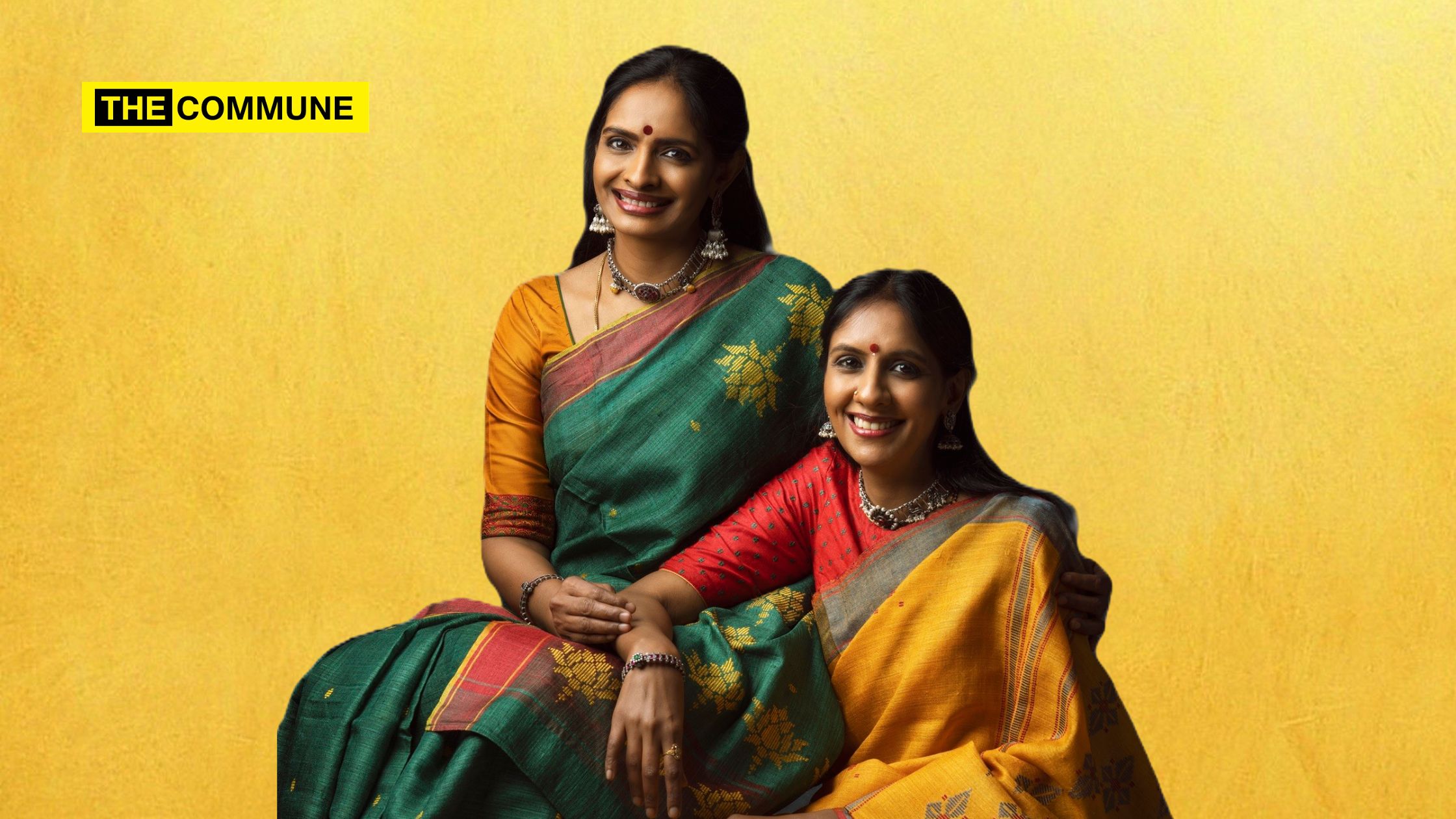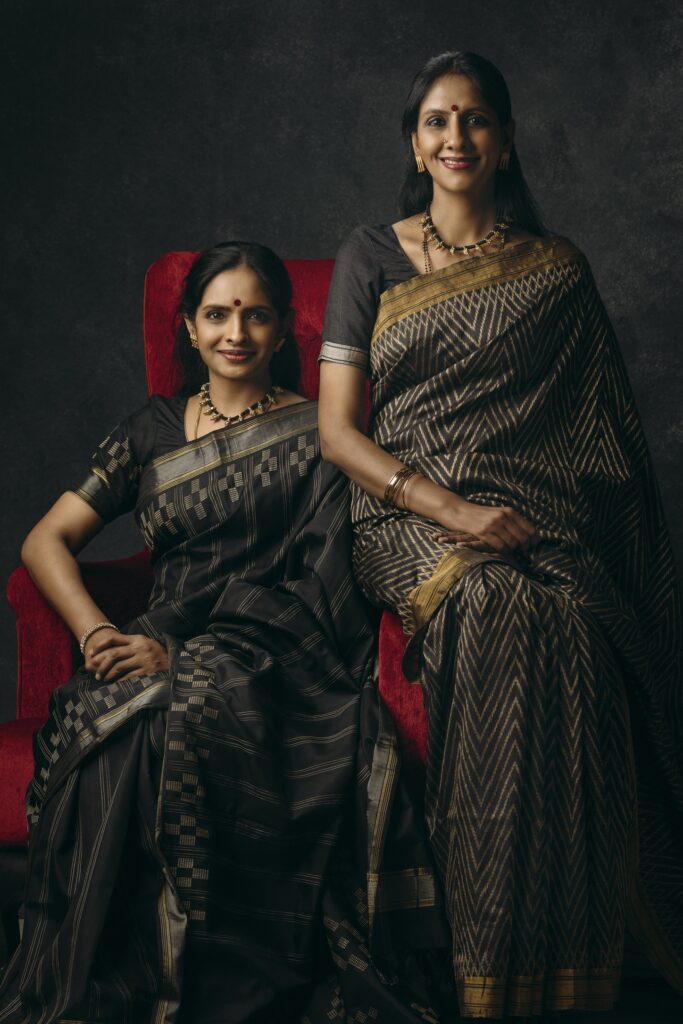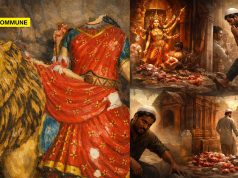
In the spellbinding world of Carnatic music, where notes dance like celestial beings, Ranjani and Gayatri emerge as twin stars, whose voices intertwine in sublime harmony. These Mumbai-born, Chennai-nurtured sisters have, for over two decades, painted the canvas of Indian classical music with strokes of familial love and artistic brilliance. Their journey, a melodious weave woven with threads of shared values and guru-given wisdom, exemplifies the magical synergy born of sisterhood.
Like the intricate patterns in a Kanjivaram silk, their partnership balances the warp of individual expression with the weft of collaborative resonance. Through the bhava-laden aalaps and lightning-fast brigas of Carnatic music, Ranjani and Gayatri navigate the delicate ragas of their relationship, their mutual respect and trust creating a symphony as beautiful as their music. Theirs is a tale not just of vocal prowess but of a harmonious dance between two souls, united by blood and divine music, in the grand concert hall of life.
The Commune caught up with Ranjani and Gayatri through this email interview. Read on…
The Commune: How did you two become an inseparable duo? What is the one thing that holds you both together?
Ranjani, Gayatri (RaGa): It seems natural that being sisters would be the best way to be artistic partners, nurtured with the same values from birth, learning from the same guru. Being together all through the formative years will create such a bond and sync in understanding and ideation. However, this is also challenged by the reality of ‘familiarity breeds contempt. Between the kinship of sisterhood and the highly individualistic pursuit and expression that music inherently is, there is a lot of middle ground to negotiate. What makes it work is that we respect the same musical and ethical values, respect, trust, and support each other, and agree to disagree after each argument.
The Commune: Mumbai or Chennai?
RaGa: That is a difficult one to answer. Vada Pav or Sambar Idly? Mumbai is our janma bhoomi, Chennai our karma bhoomi. Mumbai has given us broad exposure to many genres of music, different languages and their sounds, a drive, and an aspirational attitude. Chennai audiences have the ability to spot and nurture worthy talent early on, and their discerning support has been valuable in our professional journey.
The Commune: Do you still practice playing the Violin, or do you just take it out during Saraswati Pooja and Vijayadasami?
RaGa: Unfortunately, the latter these days. The violin is an immensely demanding instrument that requires constant arduous practice, which we cannot commit to right now. It is fascinating that destiny keeps throwing up unexpected opportunities to return to our first love. Once, we were compelled to cancel a concert because of one of us being down with a severe throat infection, and the organizers pleaded with us not to cancel. So, with barely a 12-hour notice, we had to brush up our violin skills and prepare for a three-hour violin concert. We were surprised that those 12 hours cleared up years of rust, revealing underneath the strength of 12+ years of violin performance in the earlier part of life. Here is a clip from that concert, which turned out to be a memorable one for us!
The Commune: You’ve accompanied legends like DK Pattamal and Dr. M. Balamuralikrishna. Tell us about that experience. What do you admire about them? What did you learn from them?
Ra-Ga: We have learned different things from each artist we have accompanied. We were very young when we shared performance space with legends like Smt Pattammal and Sri Balamuralikrishna. It was more like a blessing to play the violin alongside them. Smt Pattammal was so gracious, loving, and warm, as she generously appreciated our music.
We recall the sincerity, earnestness, and shraddha with which she sang at 80! Balamuralikrishna ji gently tested me (Gayatri, then 13) in the first few minutes of the concert, gauging and then amplifying the complexity when he felt I could handle the challenge. He radiated a positivity, happiness, and playful yet intense demeanour that was uniquely his. The way these legends happily made space for us and allowed us to soar was a huge inspiration.
The Commune: What language gels well with Carnatic music—Tamil, Telugu, or Sanskrit?
RaGa: The more you internalise a language, learn songs in it, and become familiar with its nuances, the more you grow to love it. Tamizh being our mother tongue, becomes intuitive to emote and express, especially when we sing viruthams. Sanskrit, a classical language, is a natural fit for Indian classical music. Muthuswamy Dikshitar’s compositions exemplify the ideal combination of Sanskrit and classical music. However, Telugu is one of the most pleasing and musical of languages, hence a major part of the mainstream Carnatic compositions is in this language. Tyagaraja, Shyama Sastry, and many others have composed such timeless gems in Telugu that bring together language, poetry, music, and emotion, and hence to us, Telugu is music to our ears in more ways than one!
The Commune: From your social media posts, we see that you’re a big fan of PM Modi, Annamalai, and the BJP. When did RaGa become political? What triggered you?
Ra-Ga: It is incorrect to brand our candid appreciation of some leaders as becoming ‘political‘. If that is so, then 80 crore Indians or whatever the number is, all voters are political. And, yes, we reiterate our respect and support for our PM and Annamalaiji. As Indians, we feel inspired and motivated by their vision, integrity, and hard work.

The Commune: What’s the worst thing that ever happened to you, and how did you overcome it?
Ra-Ga: We can’t really term it as a “worst thing”, but something that we see as a part of the real, though unfair world. And we haven’t overcome that. It is the opportunity costs we pay for not doing any active ‘PR work’. There are losses in terms of ‘positioning’ and ‘opinion making’. We have more than once heard about editorial powers watering down articles when superlatives were written or cover stories were proposed. They block it out, saying, “What is the hurry (to print superlatives)? Let some more time go” (before giving any spotlight). That extends to other institutional recognitions, too. Sangeet Natak Academy announced Yuva Puraskar for us when we were almost 40, and we learned it from their Press release! (Ranjani Gayatri declined the award in 2014, requesting that the Sangeet Natak Academy consider upcoming young artists for the same).
We were oblivious to the need and value of such active work, which helped our single-minded focus on music. At this point, we believe working in this direction of PR is unnecessary and in conflict with our artistic pursuits. But social media’s emergence and its democratic power help us. Another truth we can’t overcome is gender. Our best concerts used to be appreciated with comments, “Aha, how classical! AambaLa paaTTu” (meaning man’s music). It implies that only men can deliver certain standards of cerebrally engaging performance. It has faded from the audible zone, but we can still hear it!
The Commune: Do you follow Gen-Z pop culture? Favourite movies/series?
Ra-Ga: Interestingly, you mention Gen-Z. While we aren’t tuned fully to Gen Z, we find a good lot of them have tuned to our music. We meet a lot of youngsters from this generation at our concerts and interact with quite a few of them post-concert. A good number of the audience in our concerts is between the ages of 6 and 25, and how they immerse themselves fully into the concert experience is something! We look forward to their engaging post-concert notes, reels, and what they share as their favourite snippets. Gen Z is a forthright and expressive generation.
The Commune: There is always this criticism that the Brahmins created Carnatic music for the Brahmins. Even today, the Sabhas and the performers are dominated by Brahmins. What are your thoughts?
Ra-Ga: Shouldn’t the question be, “How is it that Brahmins are still managing to protect and nurture this art that pays so little and takes a long and arduous journey to achieve decent success?” It is reverse casteism to raise such questions repeatedly. These charges are triggered by agenda-driven activists and amplified by lazy writers who perhaps unwittingly become tools in the hands of hate-mongering political groups. Has any caste-based group opposed, insulted, or prevented any artistic pursuit of people from other communities? Has any organized group of musicians refused to teach and share their knowledge based on caste? This field has a minuscule base of followers. Carnatic music does not offer financial success comparable to popular arts. Carnatic musicians are regularly caricatured as jokers singing “tha dha rina” in popular movies.
With all this, who would aspire to be a Carnatic musician? All serious artists, including those in Carnatic music, focus intensely on their art. It is absurd to expect them to be loud activists. Accusing them of being casteists and opponents of change is fundamentally dishonest and a perversion of truth. Loud activism achieves smart manipulation of the media narratives. The only transformation that is evident is in the fortunes of so-called activists. They also partially succeed in distorting reality and damaging the art-oriented focus of unsuspecting artists. Most journalists do not research before buying into such narratives. Perhaps this helps them feel good about contributing to “Instant Social Justice”. If you observe the film world, despite the blatant nepotism, real talents win big. The number of winners is proportional to the number of aspirants. Success in art can only be democratic.
The Carnatic music world celebrates all greats, from Madurai Somu to Chinna Moulana, from Mandolin Srinivas to TN Rajaratnam Pillai, and from Ilaiyaraja to Rashid Khan. Not just the Semmangudis and GNBs. Nandanar Charitram has been most celebrated on the Carnatic music stage for decades. In summary, we say, “Change your glass. Do some honest homework. Stop being shills to divisive political groups”.
The Commune: You’ve many fans. Who are you a fan of?
Ranjani, Gayatri: N Rajam, KV Narayanaswamy, Kapil Dev, the Williams Sisters, PG Wodehouse to name a few.
The Commune: Biggest critic?
Ranjani, Gayatri: Ourselves, our family.
Subscribe to our channels on Telegram, WhatsApp, and Instagram and get the best stories of the day delivered to you personally.




